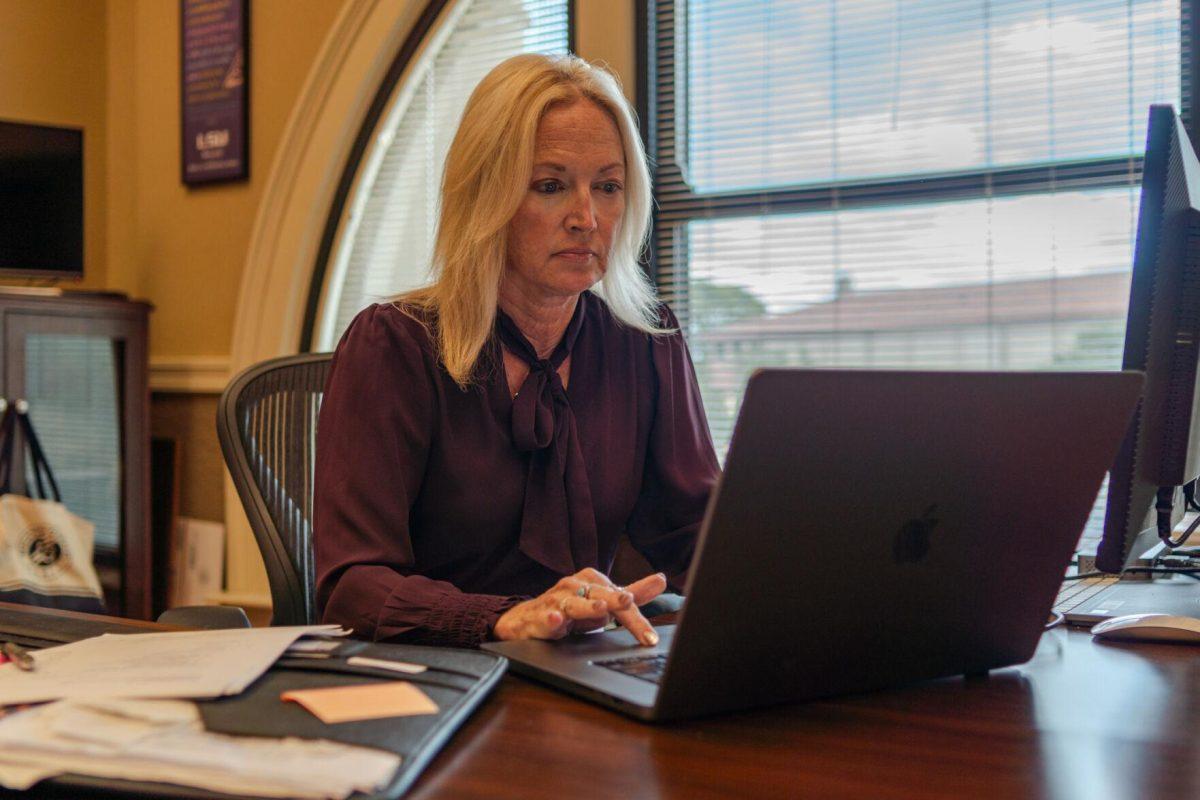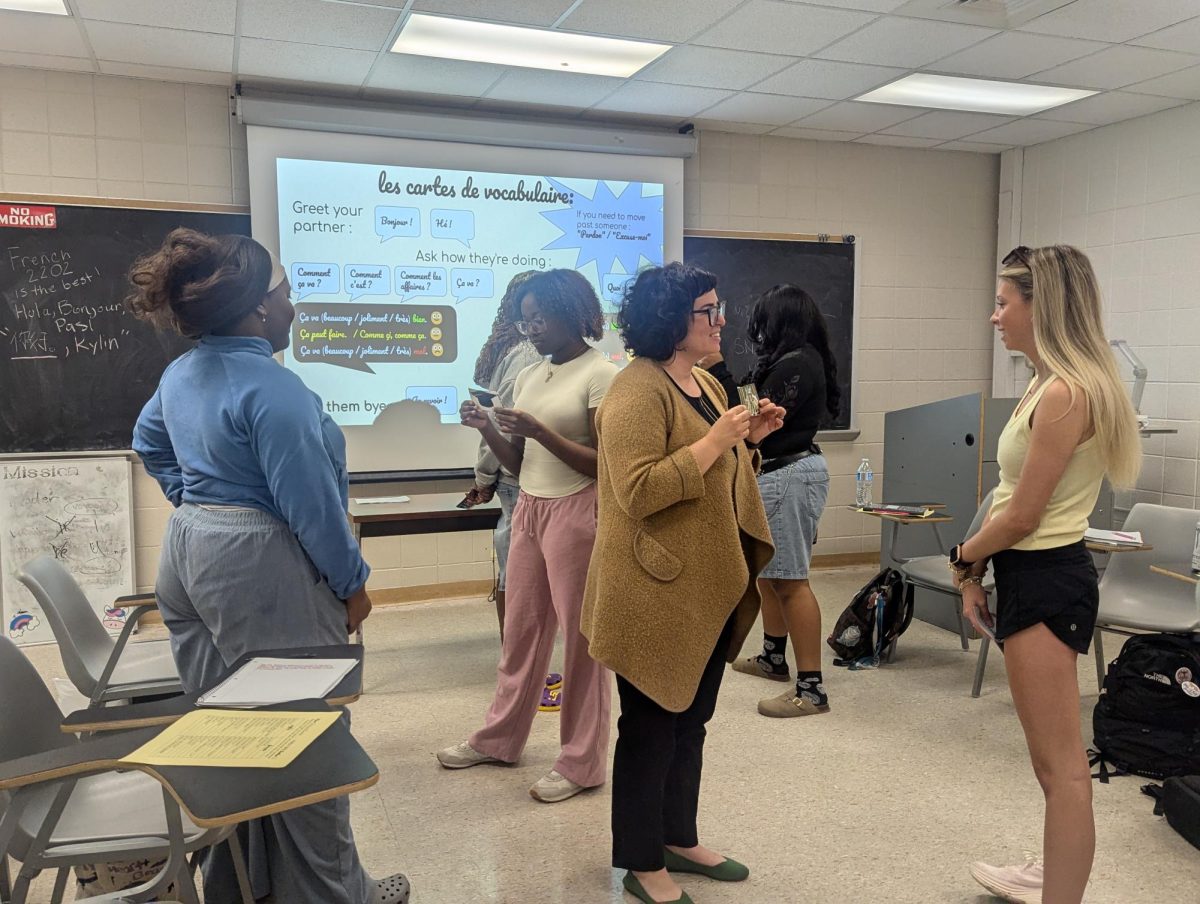Undercover state agents target average people like Ashley Davis every day. She’s a cashier at the Circle-K on Burbank Drive and East Boyd Street. But the agents aren’t cutting her — or any other Louisiana cashier selling alcohol — any slack.Spurred by nationwide federal legislation, the Louisiana Office of Alcohol and Tobacco Control began cracking down in 1996 on clerks selling alcohol and tobacco. And they aren’t letting up — even with rising fuel prices taking a toll on an already tight state budget.The underage alcohol sales rate in Louisiana in 1996 was 56 percent — the highest in the nation — with the underage tobacco sales rate at 75 percent.But 12 years later, the figures are significantly reduced.The non compliance rate for alcohol during the 2006-07 fiscal year was 6.65 percent, according to annual independent studies conducted by University professors. They have not yet evaluated the 2007-08 fiscal year.Federal figures for Louisiana’s tobacco non compliance rate decreased from 6.7 percent in 2006 to 4.7 percent in 2007.Louisiana ranks first in the U.S. for the largest reduction of sales since 1996, said Louis Thompson, Louisiana ATC director.”We rank among the top five percent nationally on a consistent basis since 2002 with regard to alcohol compliance,” Thompson said.For the 2001-02 fiscal year, alcohol non compliance rates fell below 15 percent, and tobacco rates dropped below 10 percent, according to the University professors’ evaluation.Alcohol rates for the following year reached 7.6 percent, among the lowest in the country at the time, Thompson said. And though the numbers climbed to 12.6 percent during the 2003-04 fiscal year, Louisiana was still ranked among the best nationally, Thompson said.The Louisiana ATC uses compliance checks as one tool to curb underage alcohol and tobacco consumption.But the price to maintain any business increases with time, especially when fuel costs are added to the equation. Thompson said with only 50 state agents covering 64 parishes — a boost from 16 agents in 1996 — the recent see-sawing gas prices haven’t gone unnoticed.Each compliance check carries a $65 price tag and involves three agents — including an undercover minor — who look for clerks illegally selling to underage people. Thompson said they conduct about 8,600 compliance checks across the state annually, meaning they foot about $560,000 in expenses just for alcohol and tobacco checks.Thompson said more than half of the costs associated with conducting checks are paid by federal grants targeted at underage alcohol and tobacco enforcement. The remainder comes through self-generated revenue, not taxpayer money.”The costs have increased over the years because of the cost of fuel,” Thompson said. “But we believe that it’s a very conservative and thrifty operation.”In addition to their other duties, the Louisiana ATC issues about 860 alcohol and tobacco non compliance citations a year. Citation punishments vary depending on the offense and location but typically involve fines. And on any given home LSU gameday, the ATC issues about 10 to 15 citations, Thompson said.Sasha Hyderkhan is an ATC agent familiar with the LSU campus because of his work for East Baton Rouge Parish — a parish where the non-compliance rates for alcohol sales dropped 6.1 percent in 2005 to 1.8 percent in 2006.Hyderkhan said he has made rounds across the University’s campus, sometimes conducting what he called “Cops-in-Shops.””We set up in stores — like a Circle K on campus — and we either pose as customers or set up outside and observe,” Hyderkhan said. “If they look under 21 and they’re in possession, then we’ll question them.”Hyderkhan said “Cops-in-Shops” also look for fraudulent identifications and patrons purchasing for underage people.He said they sometimes send in trained underage agents to buy alcohol or tobacco using either their real identification or none at all. If they don’t use identification, the underage agents are required to tell the clerk their real age.Thompson said the agents, who are usually student workers or students seeking to go into law enforcement, must be 19 years old or younger to try to buy alcohol, and 16 years old or younger when attempting to purchase tobacco. He said the agents, who receive $10 per hour, never ask customers to buy those products for them.”We’re never in the business to attempt to fool or trick someone,” Thompson said. “The goal is to catch someone doing something flagrant.”Ben Cicero, 25, said the ATC will never catch him. That’s because the creative writing, business and communication studies major said he doesn’t buy alcohol or tobacco for minors. “I don’t think it’s worth it,” Cicero said. “Even if they give me an extra $20, what good is it when you have to pay court bills?”—-Contact Natalie Messina at [email protected]
La. underage alcohol purchases on the decline
October 22, 2008





